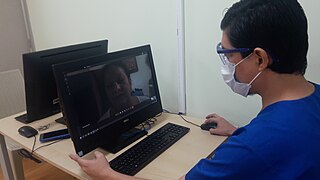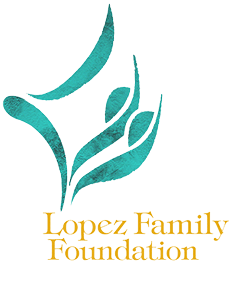 | |
| Industry | Telemedicine |
|---|---|
| Predecessor | doctHERs |
| Founded | 2017 |
| Founder | Iffat Zafar Aga and Sara Saeed Khurram |
| Headquarters | Karachi, Pakistan |
Sehat Kahani is a Pakistan-based telemedicine company. [1]
 | |
| Industry | Telemedicine |
|---|---|
| Predecessor | doctHERs |
| Founded | 2017 |
| Founder | Iffat Zafar Aga and Sara Saeed Khurram |
| Headquarters | Karachi, Pakistan |
Sehat Kahani is a Pakistan-based telemedicine company. [1]
Sehat Kahani has a business model that responds to a societal circumstances in Pakistan whereby qualified women doctors are commonly prevented from working in hospitals. [2] They employ women doctors, who work from home, providing tele-health services to patients in rural parts of Pakistan that are short of qualified healthcare providers. [2]
Sehat Kahani is based in Karachi [3] and run by Iffat Zafar Aga M.D. and Dr. Sara Saeed Khurram M.D. [4]
Sehat Kahani was in formed in February 2017 as a for-profit spin off of healthcare startup docters. [3] [1]
Sehat Kahani delivers healthcare services in 35 rural clinics in Pakistan where female patients pay a fee to speak to women doctor via telemedicine. [2] [4] Sehat Kahani has treated over one million patients. [5] In 2021, Sehat Kahani started a pilot program that expanded their work into 60 hospital intensive care units in Pakistan. [6]
Patients are met at clinics by a nurse, who does an initial examinations before passing patient care over to a doctor, that connects by digital video link. [3] In 2017, the Sehat Kahani network included 500 doctors, of which most are contractors, and 30 are employees. [3] In 2020, another 100 doctors were added to the network. [7] Patients pay between 50 and 500 rupees per visit. [3]
Sehat Kahani was one of five winners of the Global 2021 We Empower United Nations Sustainable Development Goal Challenge. [8]
Medical tourism refers to people traveling abroad to obtain medical treatment. In the past, this usually referred to those who traveled from less-developed countries to major medical centers in highly developed countries for treatment unavailable at home. However, in recent years it may equally refer to those from developed countries who travel to developing countries for lower-priced medical treatments. With differences between the medical agencies, such as the Food and Drug Administration (FDA) or the European Medicines Agency (EMA), etc., which decide whether a drug is approved in their country or region, or not, the motivation may be also for medical services unavailable or non-licensed in the home country.

Telehealth is the distribution of health-related services and information via electronic information and telecommunication technologies. It allows long-distance patient and clinician contact, care, advice, reminders, education, intervention, monitoring, and remote admissions. Telemedicine is sometimes used as a synonym, or is used in a more limited sense to describe remote clinical services, such as diagnosis and monitoring. When rural settings, lack of transport, a lack of mobility, conditions due to outbreaks, epidemics or pandemics, decreased funding, or a lack of staff restrict access to care, telehealth may bridge the gap as well as provide distance-learning; meetings, supervision, and presentations between practitioners; online information and health data management and healthcare system integration. Telehealth could include two clinicians discussing a case over video conference; a robotic surgery occurring through remote access; physical therapy done via digital monitoring instruments, live feed and application combinations; tests being forwarded between facilities for interpretation by a higher specialist; home monitoring through continuous sending of patient health data; client to practitioner online conference; or even videophone interpretation during a consult.

Apollo Hospitals Enterprise Limited is an Indian multinational healthcare group headquartered in Chennai. It is the largest hospital chain in India, with a network of 71 owned and managed hospitals. Along with the eponymous hospital chain, the company also operates pharmacies, primary care and diagnostic centres, telehealth clinics, and digital healthcare services among others through its subsidiaries.

The healthcare delivery system of Pakistan is complex because it includes healthcare subsystems by federal governments and provincial governments competing with formal and informal private sector healthcare systems. Healthcare is delivered mainly through vertically managed disease-specific mechanisms. The different institutions that are responsible for this include: provincial and district health departments, parastatal organizations, social security institutions, non-governmental organizations (NGOs) and private sector. The country's health sector is also marked by urban-rural disparities in healthcare delivery and an imbalance in the health workforce, with insufficient health managers, nurses, paramedics and skilled birth attendants in the peripheral areas. Pakistan's gross national income per capita in 2021 was $4,990 and the total expenditure on health per capita in 2021 was Rs 657.2 Billion, constituting 1.4% of the country's GDP. The health care delivery system in Pakistan consists of public and private sectors. Under the constitution, health is primarily responsibility of the provincial government, except in the federally administrated areas. Health care delivery has traditionally been jointly administered by the federal and provincial governments with districts mainly responsible for implementation. Service delivery is being organized through preventive, promotive, curative and rehabilitative services. The curative and rehabilitative services are being provided mainly at the secondary and tertiary care facilities. Preventive and promotive services, on the other hand, are mainly provided through various national programs; and community health workers’ interfacing with the communities through primary healthcare facilities and outreach activities. The state provides healthcare through a three-tiered healthcare delivery system and a range of public health interventions. Some government/ semi government organizations like the armed forces, Sui Gas, WAPDA, Railways, Fauji Foundation, Employees Social Security Institution and NUST provide health service to their employees and their dependents through their own system, however, these collectively cover about 10% of the population. The private health sector constitutes a diverse group of doctors, nurses, pharmacists, traditional healers, drug vendors, as well as laboratory technicians, shopkeepers and unqualified practitioners.
A house call is medical consultation performed by a doctor or other healthcare professionals visiting the home of a patient or client, instead of the patient visiting the doctor's clinic or hospital. In some locations, families used to pay dues to a particular practice to underwrite house calls.
Healthcare in Algeria consists of an established network of hospitals, clinics, and dispensaries. The government provides universal health care.

Medical tourism is a growing sector in India. In mid–2020, India's medical tourism sector was estimated to be worth US$5–6 billion. In 2017, 495,056 patients visited India to seek medical care. According to a report from 2019 by the Federation of Indian Chambers of Commerce and Industry and Ernst & Young, most of the medical tourist arrivals in India were from Southeast Asia, Middle East, Africa, and SAARC region. India also receives significant number of medical tourists from Australia, Canada, China, Russia, the United Kingdom, and the United States. The city of Chennai has come to be known as the healthcare capital of India.

The Lopez Family Foundation is an American nonprofit organization founded by sisters, Jennifer Lopez and Lynda Lopez in 2009. Although the sisters had wanted to create a charitable foundation for years, it wasn't until Jennifer's daughter Emme experienced a medical scare when they did. At the age of three weeks, a bump was discovered on Emme's head. Although she was okay, Jennifer felt that there are mothers and children who didn't have proper medical care and access to health systems. The sisters then partnered with Children's Hospital Los Angeles and the Telemedicine program to develop 'The Maribel Foundation'. It was named after Jennifer's then-husband Marc Anthony's sister Maribel, who died due to a brain cancer at age 8. While also partnering with companies such as Samsung and Best Buy, the foundation works to increase the availability of health care and health education to the less fortunate. As of 2012, its name has been changed to The Lopez Family Foundation. The foundation's slogan is Where children are concerned, there is no time to lose.
Medical tourism in Pakistan is viewed as an untapped market that could be turned into a huge opportunity if the government "focuses on key issues". According to Pakistani medical experts, Pakistan has a "huge potential" in becoming a regional medical tourism hub, comparable to many other countries in its neighbourhood. Medical tourism in Pakistan has been arranging potential trips for many medical health and care procedures. A number of modern hospital facilities exist in major cities such as Islamabad, Karachi and Lahore that are fully equipped and facilitated with the latest medical technologies. Many doctors and surgeons in Pakistani hospitals tend to be foreign qualified. However, security issues and an overall below-par health infrastructure have challenged the growth of the industry.
Mayo Clinic Health System is a system of community-based medical facilities. It is owned by Mayo Clinic and was founded in 1992. The organization focuses on providing medical care in rural communities in Minnesota, Iowa, and Wisconsin. As of 2022, its facilities include 16 hospitals, 53 multispecialty clinics and one mobile health clinic. The President of Mayo Clinic Health System is Prathibha Varkey.
American Well Corporation, doing business as Amwell, is a telemedicine company based in Boston, Massachusetts, that connects patients with doctors over secure video. Amwell sells its platform as a subscription service to healthcare providers to put their medical professionals online and its proprietary software development kits, APIs, and system integrations enable clients to embed telehealth into existing workflows utilized by providers and patients.
Daniel Carlin is the founder and CEO of the connected care telemedicine practice WorldClinic. He is a former U.S. Navy chief medical officer who has served as a refugee camp physician on the Afghanistan–Pakistan frontier. Carlin is board certified in Emergency Medicine and holds a consultant-staff appointment at Lahey Hospital and Medical Center in suburban Boston. He has been in practice for 29 years.
Teladoc Health, Inc. is a multinational telemedicine and virtual healthcare company headquartered in the United States. Primary services include telehealth, medical opinions, AI and analytics, telehealth devices and licensable platform services. In particular, Teladoc Health uses telephone and videoconferencing software as well as mobile apps to provide on-demand remote medical care.

Nadia Bukhari is a British pharmacist of Pakistani origin living in London, United Kingdom. In 2018, she was awarded the status of Fellow of the Royal Pharmaceutical Society (RPS) making her the youngest female fellow under the Royal Pharmaceutical Society of Great Britain; an honor bestowed to those who have achieved excellence and distinction in their pharmacy career. In addition, she is the first Muslim female and British Pakistani to be a board member of the National Association of Boards of Pharmacy for England, UK. Since 2003, she has been serving in academia at University College London (UCL). She wrote and published many articles on the pharmacy and leadership field at Pharmaceutical Press and BMC Series. In Pakistan, she received the honor to launch the National Alliance for Women in Pharmacy (NAWP) under the Pakistan Pharmacists Association (PPA). She is the global lead at the International Pharmaceutical Federation (FIP) to promote gender equity in the pharmaceutical industry. Also, she has been serving as a trustee and an ambassador for the Pakistan Alliance for Girls Education (PAGE); a charity program supported by the Government of Pakistan. She is also an executive committee member at Indus Health Network UK. In 2021, she launched Equity Pakistan, and is the UK director of the initiative; a gender equity hub for the pharmaceutical workforce in Pakistan; a collaborated initiative taken by Hamdard University Islamabad Campus and University College London (UCL). She was the chief pharmacist at doctHERs; a telemedicine company in Pakistan enabling home-based healthcare females to work in the pharmaceutical industry and connect with low-income patients across Pakistan. Following her departure from doctHERs, Nadia has co-founded ‘Siha Health & Wellness’ and is the Chief Operating Officer. Siha provides one-stop health and wellness solutions for the corporate sector in Pakistan.

John Harnett Noseworthy, M.D. is a neurologist who served as the president and chief executive officer of Mayo Clinic from 2009 to 2018. A board-certified neurologist specializing in multiple sclerosis, Noseworthy is the former editor-in-chief of Neurology, the official journal of the American Academy of Neurology. Noseworthy has advised the administration of President Donald Trump on health care issues. He has advocated for research funding and telemedicine as a means to reduce the costs of treating patients, among other things. Under Noseworthy's leadership, Mayo Clinic and governments in Minnesota launched the Destination Medical Center (DMC) initiative to advance Minnesota as a global destination for health care and wellness. Prior to his appointment as CEO of Mayo Clinic, Noseworthy held several leadership roles within the organization.
This list of telemedicine services providers is for notable telemedicine, telehealth, and mobile health providers and services. This includes virtual care facilities for remote care, services or platforms used for specific steps within the healthcare industry, and clinical navigation.
Pristyn Care is a Gurugram based health-tech company that deals into minimal invasive medical and surgical interventions. The organization has a network of more than 700 partnered hospitals and 100 clinics. The company was started in 2018 and covers proctology, gynaecology, IVF, urology, vascular, otorhinolaryngology, laparoscopy, anaesthetics, and ophthalmology.

The Hussain Dawood Pledge (HD-Pledge) is one of the biggest private donations and initiatives to fight against the COVID-19 pandemic in Pakistan. Hussain Dawood, on behalf of Engro, Dawood Hercules and his family pledged on 2 April 2020 a contribution in services, kind, and cash of Pakistani rupee (PKR) 1 billion . The contribution became public a day after Prime Minister Imran Khan announced the coronavirus relief fund to fight the pandemic and urged everyone to donate.

Carbon Health is an American chain of primary healthcare and urgent care clinics that also provides telemedicine. It was founded in 2015 in San Francisco.

Telehealth is the practice of providing healthcare via communication between the healthcare practitioner and the patient through electronic (virtual) methods such as telephones, smartphones, tablets, and computers. Telehealth permits patients to communicate with professionals via telephone, secure email, video chat, and in some instances secure messaging. Physicians may also utilize the telehealth systems for remote monitoring of patients at home. When the telehealth industry was founded, it was primarily used to provide services to underserved and rural area patients, enabled people to connect to specialists not located nearby. Telehealth was initially used predominantly for specialties such as cardiology, neurology, mental health, and dermatology. Telehealth has expanded to include many new applications such as physical therapy through digital monitoring tools and surgery done remotely using robots. The first major telehealth company, Teladoc, was founded in 2002 and since then the industry has grown to include companies such as Amwell, MeMD, and iCliniq.